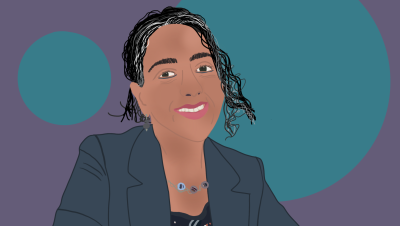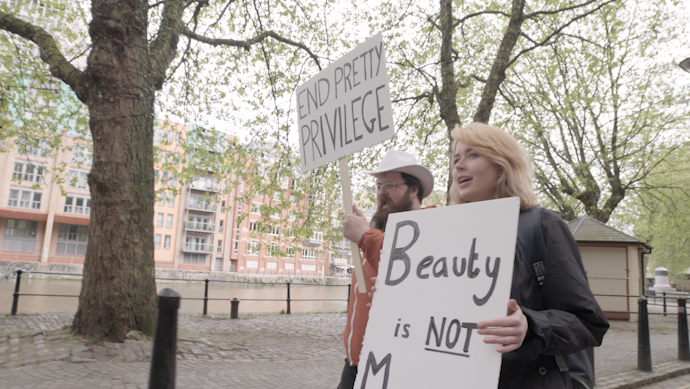
Features / Ugliness
This Bristol group wants to tax beauty
We’ve all heard of racism, sexism and homophobia, but you might not have heard of ‘lookism’ – discrimination on the basis of someone’s physical appearance.
The lack of awareness surrounding lookism is a big part of the problem, according to the Ugly Rights Movement, an organisation founded this year in Bristol.
They’re campaigning to spread awareness of ugliness discrimination, a problem they see as firmly entrenched in society, with widespread and detrimental consequences.
is needed now More than ever
Bella Wayne, one of the movement’s co-founders says that they want to “start a dialogue about attractiveness and the way that it affects how we treat other people” with the aim of getting people to confront their own bias.
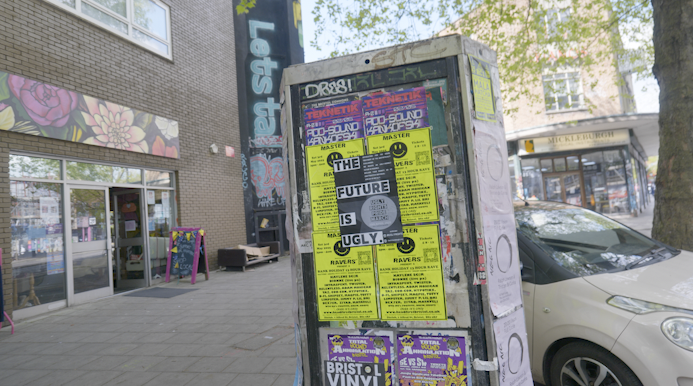
The Ugly Rights Movement wants to draw attention to discrimination based on physical appearance – photo: Ugly Rights Movement
A central and eye-catching part of the campaign is ‘The Future is Ugly Agenda’, which consists of five bold policies to deal with the effects of lookism.
Probably the most striking is the Beauty Tax: a “revolutionary approach” to addressing the “unfair advantages that come with attractiveness,” such as a 10-15 per cent difference in likelihood of being hired and a 3-4 per cent pay gap between those more and less attractive, according to their website.
Using a 1-10 grading system of ‘attractiveness score,’ determined loosely by factors such as facial symmetry, the proposal would see an annual beauty tax of £5,000 with 35 per cent of income on top for those lucky enough to end up in the 9-10 category of attractiveness.
While those scoring the lowest (1-2) face a compensation of £2,000 tax credit.
Other policies include masked job interviews, reviewing sentences for inmates deemed ‘unattractive’ with an eye to commuting their sentences, and ‘blind dates until marriage,’ an attempt to mitigate the effects of physical attraction in romance.
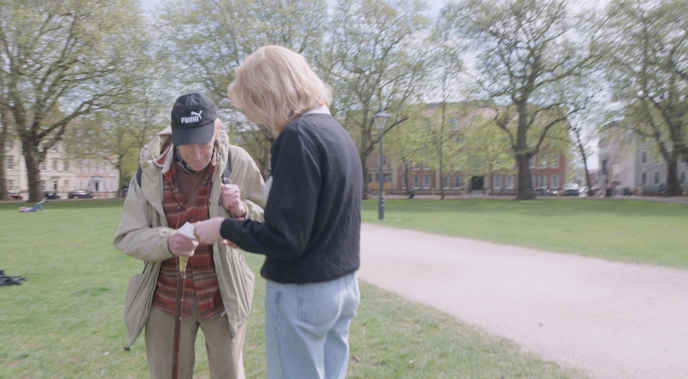
Co-founder Bella Wayne promoting their sometimes-sarcastic campaign to raise awareness – photo: Ugly Rights Movement
Of course, the proposals are more than a little tongue-in-cheek: Bella is clear that proposals are “pretty head-on” and “designed to make a splash.”
The policies are “our way of bringing attention to” the effects of ugliness discrimination.
Bella, and her co-founder, Adam C Webb, started the campaign after “years of experiencing lookism firsthand”: they bonded over being bullied in school and not listened to because of their appearances.
Bella sees the problem as omnipresent: “School is where it starts for a lot of people,” but suggests that it carries over into adult life, even if people hide it or are unaware that it even exists.”
It’s unclear as to whether they want to do away with the notion of ‘beauty’ altogether, or just improve the lives of those who they categorise as ‘ugly’.
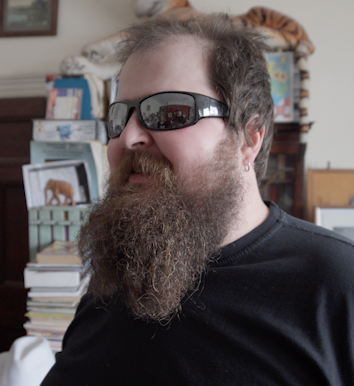
Co-founder Adam C Webb wants to expose the pervasive stereotypes around those perceived as ‘less attractive’ – photo: Ugly Rights Movement
“‘Ugly’ is an ugly word,” Bella says.
She wants to “make fun of the weight that society puts on attractiveness,” and reclaim ‘ugliness,’ making society less obsessed with physical appearance.
Yet how they can do this while at the same time advocating for a financial system that explicitly discriminates on the basis of looks is not clear.
Especially considering that the Beauty Tax would also grant those categorised as ‘least attractive’ subsidies for beauty treatments – hardly a rebellion against conventional beauty standards.
However, the overriding ambition is straightforward: to start a conversation.
“People don’t want to confront it, but this is our attempt to make them do that.”
Sieh dir diesen Beitrag auf Instagram an
Main photo: Ugly Rights Movement
Read next:
 Our newsletters emailed directly to you
Our newsletters emailed directly to you













